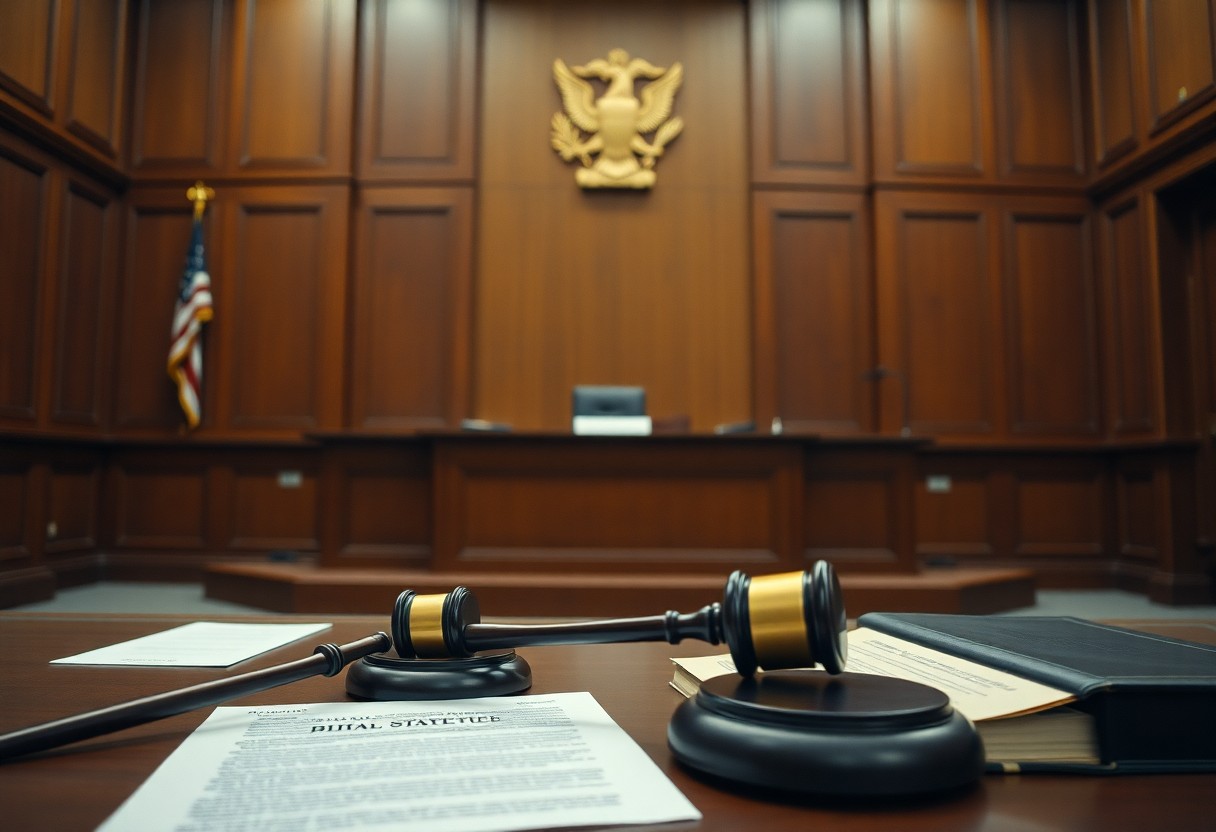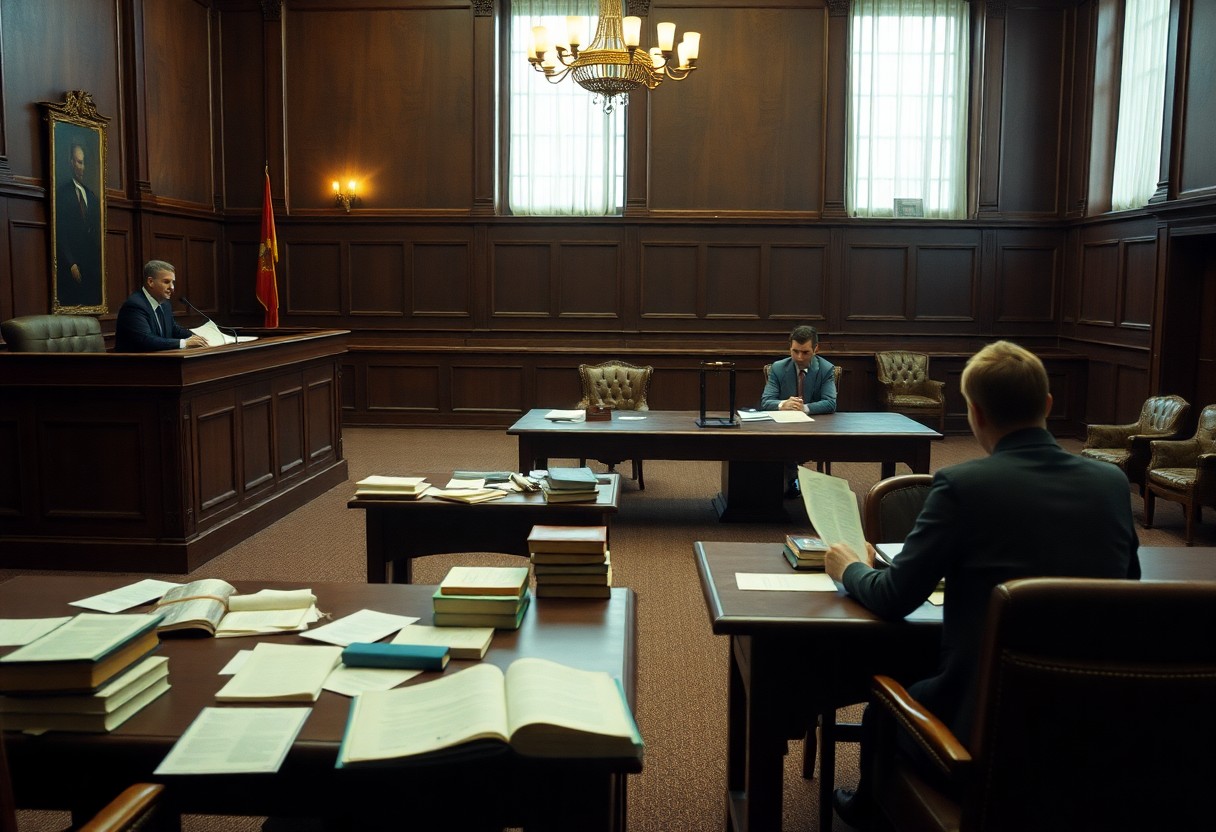It’s important for you to understand the role of witnesses in a divorce case. In most situations, witnesses are not required for the divorce process itself, but they can play a significant role in contested matters such as child custody or asset distribution. Having strong testimonials can bolster your claims or defenses, especially when disputes arise. However, consulting a legal professional is beneficial to navigate the specific requirements of your jurisdiction and ensure your case is presented effectively. Make informed choices to protect your rights and interests during this challenging time.
Key Takeaways:
- Witnesses are generally not required in divorce cases, but their presence can be beneficial in certain circumstances.
- Divorce hearings typically focus on the legal and financial aspects of the separation rather than personal testimonies.
- If domestic abuse or misconduct is involved, witnesses may be called to provide relevant evidence.
- In contested divorces, witnesses can help fortify claims regarding asset distribution, child custody, or spousal support.
- Consulting with an attorney can help determine if witnesses may strengthen a specific case.
- Documentation, such as financial records or relevant communications, often holds more weight than witness testimony.
- Some jurisdictions may have specific rules regarding witness testimony and its admissibility in divorce proceedings.

The Role of Witnesses in Divorce Proceedings
Witnesses can serve as valuable assets in divorce proceedings, helping to support claims related to custody, property division, and other pertinent issues. Their testimonies can provide critical insights into the dynamics of your marriage and the behaviors of both parties involved. By presenting concrete, firsthand accounts, they may help bolster your case and sway the court’s decisions in your favor.
Legal Basis for Witnesses in Divorce Cases
In divorce cases, the legal framework allows for witness testimonies which can provide context and evidence that impact various aspects of the case. While not mandatory, courts typically accept testimonials regarding parental capabilities, domestic abuse, or financial situations. Your attorney can guide you in determining the necessity and admissibility of witness statements based on jurisdictional laws.
Types of Testimonies That Can Influence the Outcome
Testimonies that significantly affect the outcome of divorce cases often pertain to child custody, financial disputes, and instances of marital misconduct. Character witnesses can vouch for your parental skills, while financial experts may address the division of property. Additionally, testimonies concerning abusive behavior can sway custody decisions or influence settlements.
| Testimony Type | Influence |
| Character Witness | Reinforces your parenting capabilities. |
| Financial Expert | Clarifies asset valuation and division. |
| Medical Professional | Reports on any abuse or mental health issues. |
| Family/Friends Testimony | Highlights marital dynamics and behaviors. |
When presenting testimonies, the credibility and relevance of the witness are vital. Character witnesses can validate your parenting skills and reliability, while financial experts help analyze your economic situation. Evidence of patterns, such as abusive behavior or financial mismanagement, can be pivotal. Each witness provides insights that add layers to your case’s complexity and may assist the judge in making informed decisions.
- Testimony Types
- Child Custody
- Financial Disputes
- Marital Misconduct
- Impact on Outcome
After evaluating the various types of testimonies, you should consider the strategic value each witness can provide to your case.

Assessing the Necessity of Witnesses
The decision to include witnesses in your divorce case hinges on various factors. Understanding these nuances can help you navigate the legal process more effectively. Engaging witnesses can bolster your claims and add credibility to your statements, especially in contentious matters such as asset division or child custody. However, weighing the pros and cons specific to your situation is important to determining if witnesses will serve your case well.
Factors Determining Whether Witnesses Are Needed
- Complexity of your case
- Nature of the disputes
- Judicial requirements in your jurisdiction
- Volume of evidence at hand
- Witnesses credibility and relevance
After evaluating these factors, you can better decide if witnesses will strengthen your case or if other forms of evidence suffice.
Common Scenarios Requiring Witness Testimonies
Certain situations in divorce proceedings often necessitate witness testimonies to clarify and support your arguments. For example, if you are contesting a significant asset division that requires third-party confirmations regarding value or ownership, witnesses can substantiate your claims. Similarly, in child custody battles, testimonials may reveal the parenting capabilities of each spouse and the child’s emotional wellbeing.
In child custody disputes, testimonies are particularly critical. Witnesses such as family members, teachers, or childcare providers can provide insights into the child’s environment and relationships. These firsthand accounts often present a more comprehensive view of the living conditions and interactions that each parent has with the child, heavily influencing the court’s decision. Hence, they can play a pivotal role in securing the arrangement that best serves the child’s interest.
Alternative Evidence Sources
While witnesses may play a role in some divorce cases, you can often rely on other forms of evidence to support your claims. Documentation, such as text messages, emails, and financial records, can provide a clearer picture of circumstances around the marriage. Moreover, expert testimonies from professionals, such as psychologists or financial analysts, lend credibility to your case and can help clarify the emotional and financial complexities involved.
The Power of Documentation in Divorce Cases
Thorough documentation is vital in divorce cases as it can substantiate your claims and provide context to the court. Records of your bank statements, bills, and communications can effectively demonstrate behavior patterns or financial situations. In addition to proving marital circumstances, this evidence can also help in determining custody arrangements or asset division, ensuring you are well-equipped to present your case.
Utilization of Expert Witnesses
Employing expert witnesses can significantly enhance your divorce case by providing specialized insights that a layperson simply cannot. Their objective analyses, whether regarding the psychological aspects of a marital dispute or the valuation of shared assets, add a layer of credibility that strengthens your argument. Their presence can aid in clarifying complex matters that are pivotal during proceedings.
Utilizing expert witnesses offers a tactical advantage, particularly in high-stakes divorce cases involving significant assets or child custody disputes. For example, a child psychologist might testify about the effects of parental conflict on children, which can influence custody decisions. Similarly, a forensic accountant can uncover hidden assets, challenging any attempts by a spouse to undervalue shared wealth. These professionals can help bridge the gap between complex emotional and financial realities, empowering your case with an authoritative voice that the court is likely to respect and consider seriously.
Building a Robust Case Without Witnesses
Even without witnesses, you can still build a strong divorce case by gathering substantial evidence. Documentation such as financial records, correspondence via email or text messages, and photographs can serve as powerful tools to substantiate your claims. You might also consider presenting expert opinions or utilizing depositions to strengthen your argument. Utilizing technology and thorough research can fill gaps that eyewitness testimony would otherwise cover, ensuring your case remains compelling.
Strategies for Compiling Evidence Independently
Your ability to compile evidence independently can significantly enhance your divorce case. Start by organizing any relevant documents, such as bank statements, tax records, and property deeds, which can highlight issues like asset division or financial misconduct. Collecting digital communication is also effective; save emails and instant messages that indicate behaviors or agreements. Creating a timeline of significant events might clarify the context and bolster your argument further.
Tips for Strengthening Your Argument in Court
To sharpen your argument in court, focus on delivering a clear and concise summary of your evidence. Engage with emotional appeals but ensure they are rooted in factual data. Use precise language when referencing documents or exhibits to avoid ambiguity. Attending court with a well-thought-out strategy and a coherent narrative can significantly influence the judge’s perception of your case.
- Deliver a clear summary of your evidence.
- Use emotional appeals grounded in fact.
- Engage with precise language referencing documents.
- Have a well-thought-out strategy for court.
- Craft a coherent narrative for the judge.
In court, it is beneficial to present your facts with confidence and avoid overly complex jargon that could confuse the judge. Visual aids, like charts or slides, can help clarify your points and improve engagement. The pacing of your presentation matters too; give the judge time to absorb the information. Assume that a well-structured presentation can increase the chance of a favorable outcome.
- Present facts with confidence.
- Avoid overly complex jargon.
- Use visual aids for clarity.
- Ensure time for absorption of information.
- Structure your presentation for favorable outcomes.

Expert Opinions on the Matter
Insights from professionals in the field can shed light on the necessity of witnesses in divorce cases. Generally, witnesses may not be required for most uncontested divorces, yet their presence can be beneficial in contested situations, particularly when there are disputes regarding child custody, asset division, or allegations of misconduct. Legal guidance often emphasizes the importance of robust documentation over witness statements for streamlined proceedings.
Insights from Family Law Attorneys
Family law attorneys frequently highlight that while witnesses are seldom mandatory, their testimonies can add substantial weight to your case. Attorneys might suggest gathering testimonies from neutral parties who can provide clear insights into your and your spouse’s parenting capabilities or financial habits, thus enhancing your position in negotiations or court.
Perspectives from Divorce Mediators
Divorce mediators often view witnesses as a tool for clarification rather than necessity. Mediation sessions typically focus on dialogue and problem-solving, allowing both parties to voice their concerns. If there is a need for physical evidence or personal accounts of circumstances affecting the divorce, mediators may recommend involving witnesses to strengthen the narrative. The goal remains to foster an agreement through collaboration rather than contention.
To wrap up
From above, it’s clear that having witnesses for your divorce case can strengthen your position, but they are not strictly necessary for every situation. Depending on your circumstances, you may rely on documentation and your personal testimony to present your case effectively. It’s vital to consult with a legal professional who can tailor advice to your specific needs and jurisdiction, ensuring you are well-prepared for your divorce proceedings.
FAQ
Q: Do I need witnesses to file for divorce?
A: Generally, you do not need witnesses to file for divorce. The process typically involves submitting legal documentation to the court, which does not require witness testimony. However, specific circumstances may lead to a need for witnesses, such as disputes over child custody or allegations of abuse.
Q: When might witnesses be necessary in a divorce case?
A: Witnesses may be needed if there are contested issues, such as proving infidelity, providing testimony for the character of one spouse, or verifying events related to the marriage or household. In these cases, witnesses can help the court by offering their perspective on the situation.
Q: What role do witnesses play in a divorce proceeding?
A: Witnesses can provide firsthand accounts that help clarify disputes during the divorce proceedings. Their testimony may influence decisions regarding property division, alimony, or child custody arrangements by providing the court with additional information relevant to the case.
Q: Can I use friends or family members as witnesses?
A: Yes, friends or family members can serve as witnesses in a divorce case, as long as they can provide relevant and unbiased testimony regarding the matters involved in the divorce. Their credibility and relationship to the parties may also be taken into account by the court.
Q: How do I prepare my witnesses for court?
A: To prepare witnesses for court, provide them with information about what to expect during the proceedings, including the types of questions they may be asked. It can also be beneficial to practice with them, ensuring they understand the importance of honesty and clarity in their testimony.
Q: Can witnesses help with issues beyond testimony?
A: While witnesses primarily provide testimony, they can also offer support during the process, helping the parties involved to gather evidence or even testify on matters related to character or behavior that may impact custody or visitation rights.
Q: What happens if my witness cannot attend the hearing?
A: If a witness cannot attend the hearing, you may have options to explore, such as submitting a written declaration or affidavit from the witness if permitted by the court. It is advisable to consult with a legal professional for guidance on how to address this situation appropriately.
